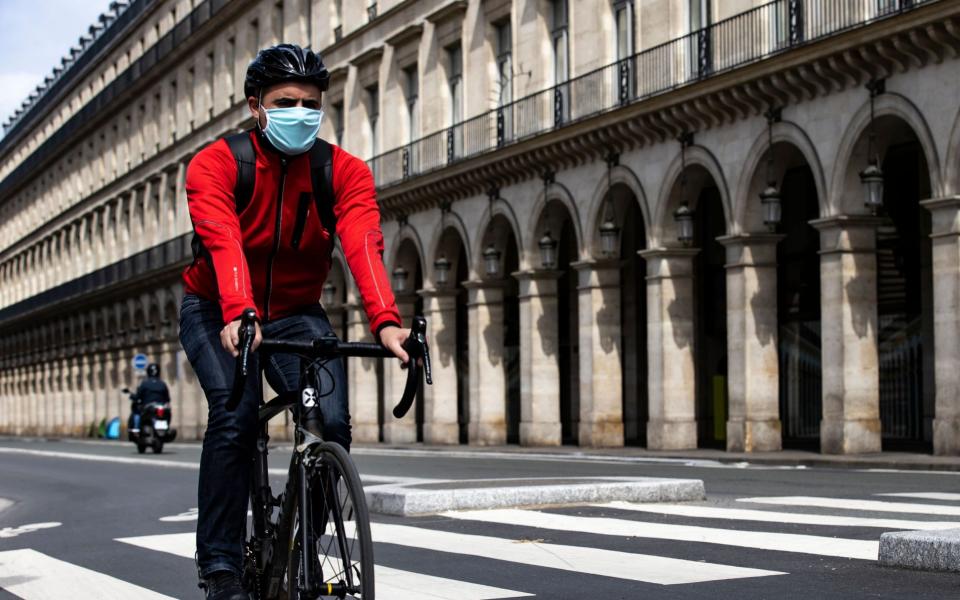Paris gets on its bike as France emerges from lockdown, with cycling up 53 per cent


The number of cyclists has increased by more than half in Paris since the coronavirus crisis, with many commuters wary of public transport as France emerges from lockdown.
Cycling is also gaining popularity in other French cities. The national government and local authorities are encouraging people to avoid crowded metros, buses and trams without resorting to cars.
The Paris authorities have created 30 miles of extra cycle routes in the past month, and nearly 50 miles of new bike lanes are to be provided in Lyon this summer.
In the two weeks since France began loosening restrictions, bike use has jumped 53 per cent from its pre-lockdown level, according to the Paris city council. “There is undeniably a post-lockdown bike effect,” said Christophe Najdovski, a deputy mayor in charge of transport. “If you create quality cycling lanes, more cyclists appear.”
Anne Hidalgo, the mayor, has cut private car use in recent years, pedestrianising the banks of the Seine and restricting traffic in the heavily polluted French capital.
Before the Covid-19 pandemic, she promised to create 870 miles of bike lanes by the end of this year. Many Parisians delighted by the cleaner air and decreased noise during lockdown are now backing Ms Hidalgo’s efforts to prevent the city returning to its car-clogged past, despite objections by motorists’ groups.
One of Paris’s busiest roads, the rue de Rivoli, which runs past the Louvre museum, has been closed to private cars. It now has four bike lanes and one for buses, taxis and emergency vehicles.
France is pumping £17 million into promoting cycling. Bike owners are eligible for free repairs of up to €50 by approved mechanics, and the Paris authority will pay up to €500 (£452) towards the cost of an electric bicycle.
“Some economists predict that bike use will overtake cars by 2030, but with the current dynamic that could happen by 2025,” Mr Najdovski said.

